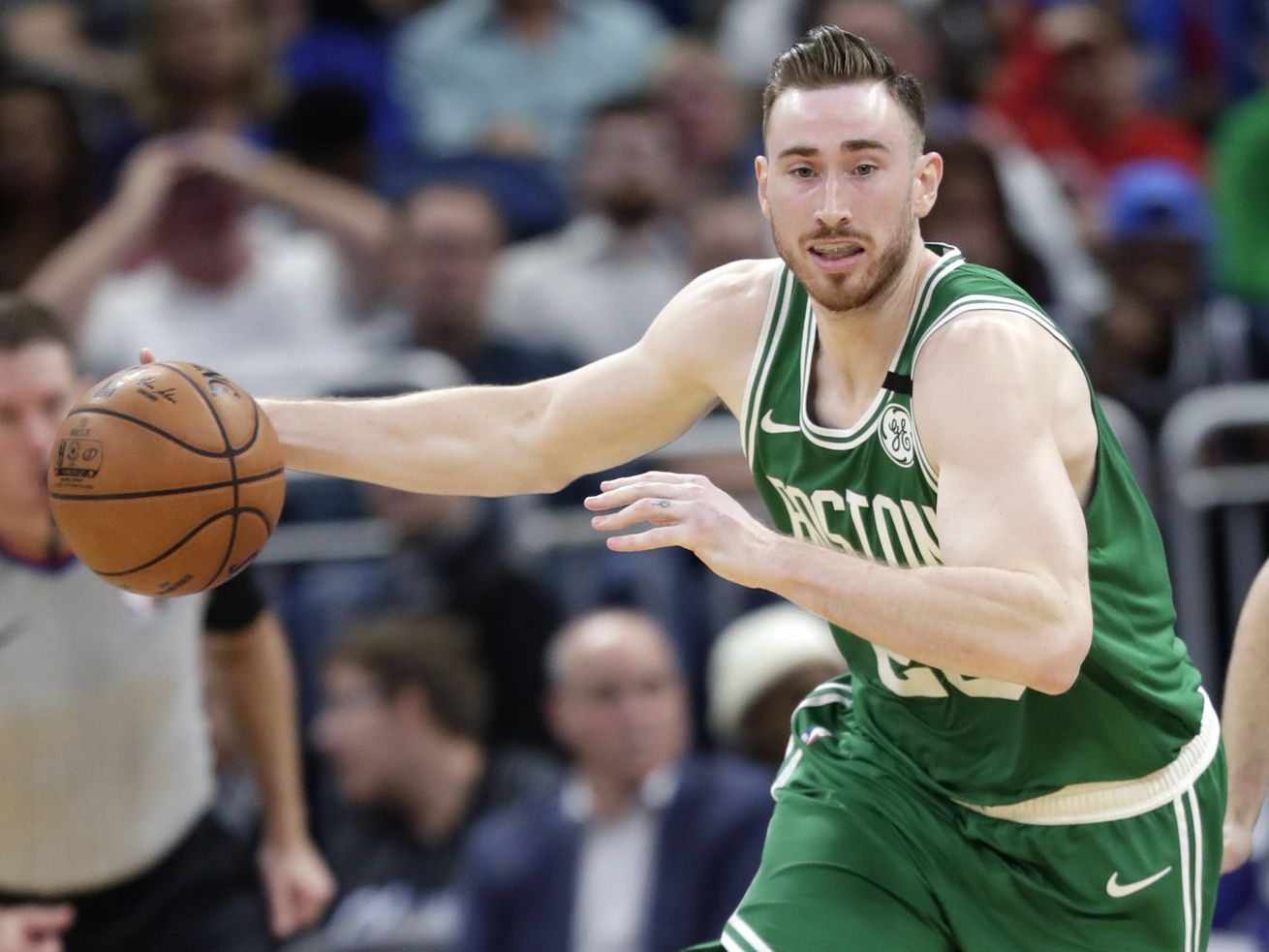Gordon Hayward’s sweet new deal with Charlotte is a head-scratcher

Former Utah Jazz player, who bolted SLC for Boston when he got the chance, is on the move again, this time to the Hornets. And with a handsome raise
Only in the NBA can you be the fifth best player on your team at best, miss 142 games (regular season and playoffs), fail to help your team win a championship — the stated reason you joined the team — see a decline in your job performance and the passing of your prime years, suffer a serious leg injury — and then be offered a fat pay raise.
Not only was Gordon Hayward awarded $96 million more in total money by the Charlotte Hornets, he was given a four-year deal worth $120 million, fully guaranteed, and all of this while NBA revenues are nosediving due to the pandemic and the China backlash, both of which will require players to take substantial pay cuts across the board.
There was universal wonder when Hayward opted out of the $34 million remaining on the final year of his contract. That meant there was a team out there who was willing to pay him more than that! This was mind-boggling given the current NBA financial outlook and Hayward’s performance. But there it was: the Hornets offered that long-term money to a middle-of-the-pack player who’s mostly invisible on a good team. Ignoring stats, which can be misleading, few would argue that he was the fifth best player on the Celtics and many would argue that he was closer to the seventh or eighth best. But he was among the top 20 highest paid players in the league.
Hayward’s deal with the Hornets also is among the biggest guaranteed contracts in the league. Is Michael Jordan, the Hornets’ majority owner, trying to cement his reputation as a terrible (de facto) general manager? Hayward is eating up 33% of the team’s salary cap. How are the Hornets going to build the rest of the roster?
The Hornets will reportedly waive Nicolas Batum and his $27 million annual salary to create more cap space for Hayward, but, as CBS reporter Sam Quinn noted, Batum will still cost the Hornets $9 million annually against their cap during the next three years. That means Hayward will cost the team another $27 million for a total of $147 million for four years.
Headline on CBS Sports website: “The Hornets Just Gave Gordon Hayward One of the Worst Free-Agent Contracts in Recent Memory. Hayward somehow costs more now than he did in his prime.”
Hayward will turn 31 in March.
Nothing makes sense about this deal, or about the NBA or even Hayward himself.
Hayward played for the Utah Jazz the first seven years of his career. The team spent years developing him. He was a 5.4-point scorer as a rookie and improved each season thereafter with patient nurturing by Jazz coaches. By 2017 Hayward was an All-Star, averaging 21.9 points per game.
He was so grateful that when he became a free agent he dumped the Jazz and signed a four-year, $128 million deal with the Celtics, taking slightly less pay to do so. He wrote a lengthy letter to fans, explaining himself. He said he regretted leaving but he wanted to play for his former college coach, Brad Stevens, who was now the Celtics head coach; he said they had unfinished business together — to win a championship; he said that was why he was leaving — to win a title, to play for Stevens, to play for the tradition-rich Celtics.
Three years later, he abandoned the Celtics, Stevens and those championship ambitions to sign with one of the worst teams in the league for more money. The Hornets’ average finish in the Eastern Conference the last 16 years is 11th (rounding up from 10.6) out of 15 teams.
The Celtics didn’t get much for their investment in Hayward, who nonetheless felt no more loyalty to them (or his old coach) than he did the Jazz. Five minutes into his Celtic debut in 2017, he suffered a horrific ankle fracture and missed the rest of the season, as well as numerous games the next two seasons. He missed 31 of 45 playoff games in three seasons.
The loss of Hayward will be felt by the Celtics — for the better. As a result of him leaving, they will have more cap space than any contender in the league, freeing them to sign a big free agent. If Hayward had remained with the Celtics, the team would have been close to luxury-tax territory. The loss of Hayward is addition by subtraction. He did them a favor by leaving.
The Jazz didn’t feel his loss either. During Hayward’s last season in Utah, the Jazz advanced to the semifinals of the Western Conference Finals. A year later, the team advanced to the semifinals of the Western Conference Finals.

